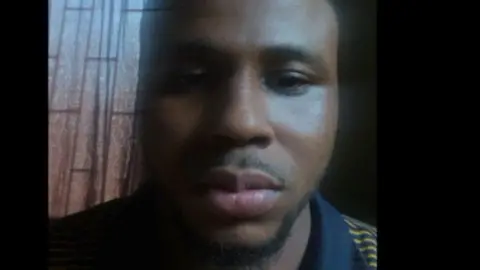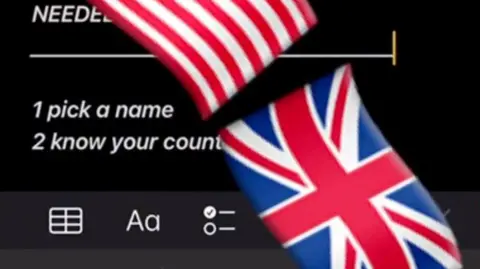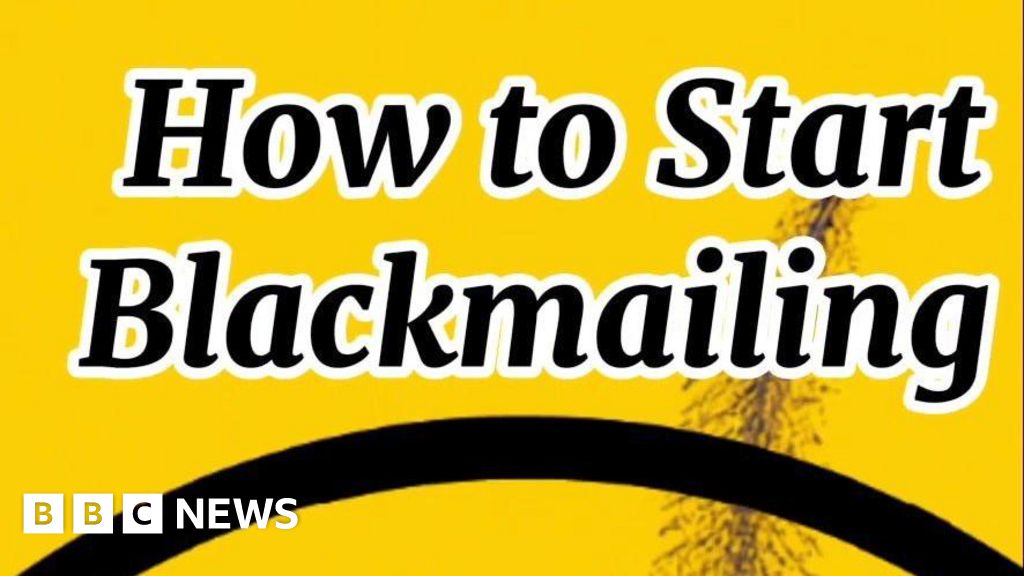Tony Smith,Angus Crawford
 BBC
BBCCriminals are selling guides on social media on how to carry out sextortion, BBC News has learned.
The guides show people how to pose as young women online, trick a victim into sending sexually explicit material and then blackmail them.
On Tuesday, Olamide Shanu appeared in court in London. He is believed to be part of a gang that made £2m from blackmailing adults and children online.
Last month the National Crime Agency issued an alert to schools across the UK, warning against the dangers of sextortion.

Experts say there has been a sharp rise in children falling victim to sextortion carried out by gangs based in West Africa, mainly Nigeria.
In the UK, two British teenagers are known to have taken their own lives since October 2022 after becoming victims of sextortion.
Paul Raffile, an intelligence professional and expert on sextortion, describes the phenomenon as a “massive threat” to children.
“Internet scammers over these past two years have found out that they can get very rich very quickly by scamming an untapped market.
“And that’s teenagers,” he said.

Mr Raffile pointed out that adults have been targets for sextortion for years – and now teenage boys are among the most vulnerable.
“They are finding their victims by going on social media platforms and searching for high schools and youth sports teams, and then ‘following’ or ‘friending’,” he said.
BBC News has found that guides on how to carry out the crime are openly for sale in videos posted online.
It is described in detail how to set up untraceable phone numbers, create fake social media profiles and use secure payment methods.
Some boast about the number of people they have blackmailed – one wrote that a victim paid him regularly, “every Friday”.
Lucy’s 14-year-old son fell victim to a sextortion gang this year.
Although he had not sent any images himself, the blackmailers mocked up a compromising picture and in a text threatened to share it.
“It was a message, basically saying, ‘don’t shut us down. If you don’t send us money in 24 hours, we’ll send a picture to all your contacts’,” she said.
“He was shell-shocked. And he was literally physically shaking.”
The teenager had already paid the blackmailers £100, but with his parents’ help he shut down the account and the phone. He never heard from the blackmailers again.
“If he hadn’t been at home that morning, and I hadn’t been in the kitchen, and if he hadn’t talked to me, I don’t know how it would have played out for him,” said Lucy.

The US authorities have applied to extradite Mr Shanu, who appeared at Westminster Magistrates’ Court.
The 33-year-old is wanted in the state of Idaho on charges of extortion, money laundering and cyberstalking.
The charges relate to four victims, one of whom was a child.
Investigators believe there may be hundreds of victims over a three-year period.

Mr Raffile says the big Tech Companies are not doing enough to stop sextortion.
“This crime has really exploded on Instagram and Snapchat over these past two years… these platforms need to aggressively go after these criminals,” he said.
Snapchat told the BBC: “We’ve been ramping up our efforts to combat it including a reporting option specifically for threats to leak sexual content, and in-app education for teens.”
In a statement Meta, which owns Instagram, said it offered “a dedicated reporting option so people can report anyone threatening to share private images”.
“We default teens under 18 in the UK into private Instagram accounts at sign-up, which hides their follower and following lists, and into stricter default messaging settings,” it added.
TikTok said the platform was designed “to be inhospitable for those intent on causing harm to teens and we do not tolerate any content or behaviour promoting sextortion”.


